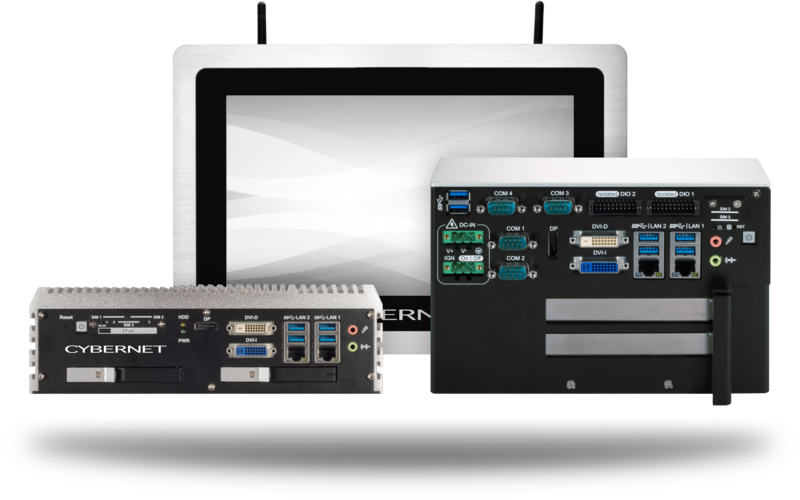Agriculture faces numerous challenges, including changing climates, water shortages, and new invasive species that threaten crops. Precision farming technology aims to counter these threats and deliver better crop yields while using fewer resources.
What is Precision Farming Technology?
Precision farming technology is the application of modern digital tools, such as computers and Internet of Things sensors, in agriculture. When one pictures a modern farm, they probably imagine massive tractors, sprinklers spraying hundreds of gallons of water across miles-wide fields, and other large-scale efforts. Precision agriculture is about using those resources in a more targeted manner, which helps reduce their overall impact and cost.
Applications for Precision Farming Technology
Precision farming tools are used throughout the agricultural sector, from out in the field to the vehicles that farmers rely on. The most critical applications for this technology include:
Crop Monitoring
By placing Internet of Things (IoT) sensors throughout a field, farmers can closely monitor factors such as temperature, moisture, nutrient levels, and the presence of any parasites. If any of these factors become unsustainable for crops, the sensors can alert farmers via their industrial computers. This lets farmers respond to changing situations more quickly and prevent crop loss from occurring.
Equipment Management
Modern farms rely on fleets of tractors and vehicles to till fields, dispense fertilizer, and harvest crops. By using GPS and Wi-Fi systems to guide and control tractors, farmers can optimize the use of their vehicles, ensuring accuracy down to the centimeter. This helps prevent overlaps and gaps in coverage, preventing redundant seeding and ensuring fewer crops go unfed or wasted during the harvest.
Optimized Fertilizer and Water Usage
Yield monitoring systems built into tractors can track information such as the amount of grain harvested from a particular section of the field, its health, and other critical data. Combined with IoT sensors feeding information, farmers can use resources like water and fertilizer in a more precise and targeted manner. Rather than water the entire field, for example, farmers can water just the section that needs it most, saving thousands of gallons of water in the process.
Benefits of Precision Farming
The accuracy and deeper insights that precision farming technology offers help farmers optimize operations from the first planting to the final harvest. Properly implemented and supported, precision agriculture can deliver:
More Efficient Use of Resources
In 2022 alone, U.S. farmers used 20.47 million metric tons of fertilizer, comprising nitrogen, phosphate, and potash. This is a colossal amount of material that must be collected, refined, shipped, and paid for before it can be used in the fields. Every step of this process adds additional costs and fees that farmers must pay for. Precision agriculture technologies let farmers achieve the same results as before, but with fewer resources, such as fertilizer and water, used in the process. This efficiency directly feeds into the other benefits of precision farming, such as…
Crop and Cost Savings
By reducing the amount of water, fertilizer, and pesticides used through more targeted application, farmers can save money and lower their operating costs. The constant monitoring that IoT sensors offer also helps ensure that fewer crops go to waste thanks to superior information and equipment control, meaning that farmers can achieve more efficient crop yields, netting more profit from the same fields. This is especially critical for smaller farmers dealing with narrow profit margins. Water is another key concern for agriculture; in California alone, farmers use approximately 34 million acre-feet of water annually. With water usage an increasingly pressing concern worldwide due to climate change and population growth, any innovation that reduces this consumption is a welcome development.
Reduced Environmental Impact
While resources like fertilizer and pesticides are often critical for healthy crop growth, they can have serious negative repercussions for the rest of the environment. Unchecked chemicals entering the water table can cause serious health issues for people and animals, making it critical for farmers to manage their usage carefully. By using these resources in a more measured and careful manner, thanks to precision farming, farmers can prevent accidental spillage and environmental damage from occurring.
Challenges for Using Precision Farming Technology
As with any new technology or work process, precision farming technology has hurdles and challenges that must be overcome and addressed. When considering whether you should start using precision agriculture tools, the most important factors to consider are:
Cost and Implementation
Obviously, new tools and technology have a price tag. Farmers already need to balance their budgets carefully and deal with unpredictable factors like weather, disease, and parasite swarms outside of their control, which makes asking them to invest in new technology a hard sell. Precision agriculture proponents and providers must demonstrate not only that their solutions are worth the investment but also that they are easy to implement. This way, farmers who do choose to use precision tools spend less time learning and training to use them, and more time getting value out of them.
Reliability and Ruggedness Concerns
Working on a farm is hard on both people and equipment. Constant outdoor exposure, extreme variations in temperature depending on the time of year, and the constant threat of dirt and water getting inside the case are all threats that computers face in agriculture. Any electronic device used in agriculture must integrate rugged design features such as ingress protection for the casing, fanless cooling, and vibration resistance. Look for devices that have been tested under established certifications, such as MIL-STD 810G and IEC 60068, as these devices are proven to have the necessary durability to be considered “rugged.”
Interoperability Concerns
Another key concern for farmers when considering any new piece of equipment is whether it can work alongside the tools they already have. Modern farms already rely on various pieces of computer software and hardware to manage their business and control machinery. Any new technology needs to be compatible with these tools, such as by having legacy I/O ports that let it interface with older machinery. For mobile devices like rugged tablets, this takes the form of having multiple connectivity options, including Wi-Fi and Bluetooth.
Unlock Precision Farming with Cybernet Computers
With precision farming technology, farmers can enjoy healthier crops and greater yields while reducing both their costs and their environmental impact. While these digital tools do require initial investment and training to get the most out of them, the benefits they reap can help farmers for years to come.
If you need rugged, reliable computers to support precision farming technology, contact Cybernet Manufacturing. We’d be happy to discuss how our industrial-grade computers and tablets can serve the agricultural industry and help you find the perfect fit for your needs. Our qualifications as an original equipment manufacturer also enable us to customize our products to meet specific requirements, such as processing power, I/O port compatibility, integrated peripheral devices, and other specific needs.


